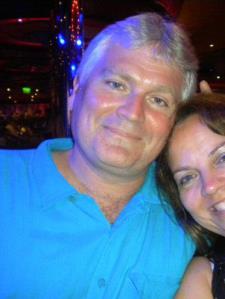
Veronique B. answered • 04/09/20
Patient, effective French Tutor
1. qui and que
« Qui and que » can both be used to refer to persons or things. The main difference is, qui is used for the subject (or indirect object for persons) while « que »is for the direct object. Qui is also being used after a preposition (à, de or pour)
Qui (subject) could mean who, which, or that.
Que (direct object) could mean who, whom, which, or that.
A few examples:
Mon frère, qui a vingt ans, est à l’université. My brother, who’s twenty, is at university.
*Est-ce qu‘il y a un bus qui va au centre-ville? ls there a bus that goes to the town centre?
Les amis que je vois le plus sont Léa et Mehdi. The friends that I see most are Lea and Mehdi.
Voilà la maison que nous voulons acheter. That’s the house which we want to buy.
la personne à qui il parle the person he is speaking to
les enfants pour qui j’ai acheté des bonbons the children I bought sweets for
Examples source: Collins Easy Learning French Grammar
*Kindly note that que is shortened to qu’ if it precedes a word that starts with a vowel or most words that begin with a letter h.
3. dont
Another relative pronoun is dont. When translated in English, it means whose, of whom, of which. It may be used to refer to persons or things. The good news is, it does not change its form, nor does it have to agree with anything!
les films dont tu parles the films you are talking about (plural noun)
la femme dont la voiture est en panne the woman whose car has broken down (singular noun)
4. où
This relative pronoun is used for places and times. Its English counterpart could either be where, when or even which and that, depending on how it is used.
Où is also used as the question word where (see article on ASKING QUESTIONS IN FRENCH) and the way it is used as an interrogative pronoun is basically the same as its use as a relative pronoun. There is an added function however, and that is to refer to a time something occurred.
In short, it covers both place and time in its relative pronoun function and takes the job of “when” as well, aside from “where”. (Note: the interrogative pronoun “quand” is not as multifunctional as où and cannot be used as a relative pronoun.)
Some examples:
Paris est la ville où on peut manger les meilleurs escargots . Paris is the city where we can eat the best snails.
C’est l’année où ils ont gagné la coupe du monde. That’s the year they won the world cup.
In addition, où can also be used after prepositions.
La ville d’où elle vient…
The city (where) she’s from…
- Où( lieu) 2.que (indirect object) 3.qui( person) 4. Ce dont ( thing indirect object)
5.pour lesquels 6. dont (de qui) 7. auquel tu ressembles or à qui 8.avec lesquelles ( traditions f.word)
Hope it's helpful!!!!





